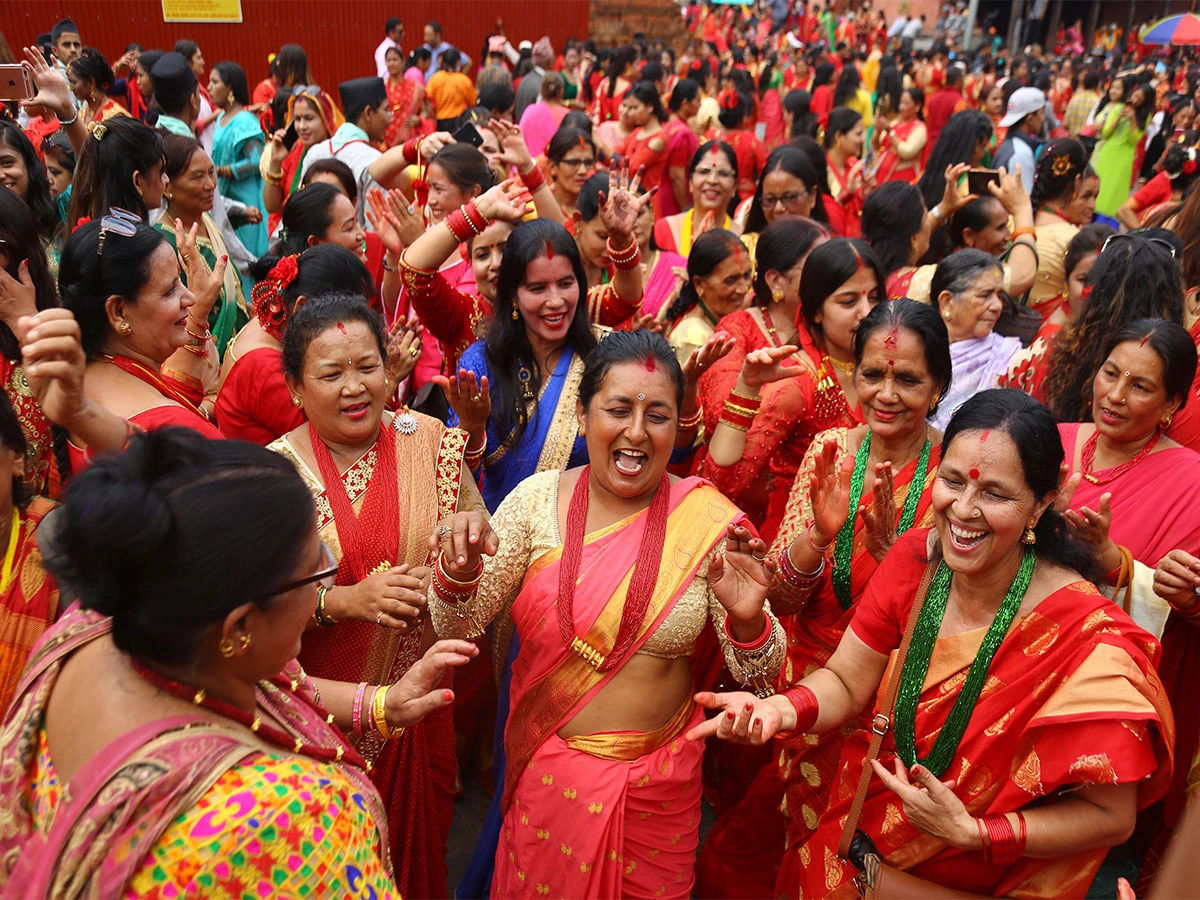26-AUG-2025,03:55PM
The vibrant festival of Teej has begun in Nepal, with Nepali Hindu women across the country gathering to celebrate the occasion with devotion, fasting, and prayers. While the festival is traditionally marked with joy, songs, and dances dedicated to Lord Shiva and Goddess Parvati, many women have also shared the pain, struggles, and worries they carry within their celebrations. The duality of festivity and hardship reflects the complex realities faced by Nepali Hindu women in today’s society.
Significance of Teej for Nepali Hindu Women
Nepali Hindu Women : A Festival of Devotion and Fasting
Teej is one of the most important festivals for Nepali Hindu women, observed primarily by married women who fast and pray for the long life, health, and prosperity of their husbands. Unmarried women also participate, seeking blessings for a good marriage and happy future.
Nepali Hindu Women : Rituals and Traditions
During Teej, Nepali Hindu women dress in red sarees, adorn themselves with traditional ornaments, and gather in temples to worship Lord Shiva and Goddess Parvati. The ritual fast, which often includes abstaining even from water, is believed to bring blessings and marital harmony.
Struggles Hidden Behind the Celebrations
Social and Emotional Burdens
While Teej is celebrated with joy, many Nepali Hindu women experience emotional pain. For some, the festival serves as a reminder of social expectations, pressures of marriage, and struggles in their personal lives.
Health Concerns During Fasting
The tradition of strict fasting poses health risks, particularly for women with existing medical conditions. Doctors and health experts in Nepal have often raised concerns, urging women to balance devotion with well-being.
Voices of Nepali Hindu Women
Expressions of Worry
Several women have shared their worries about family responsibilities, financial struggles, and gender-based challenges in society. These concerns sometimes overshadow the festive spirit of Teej.
A Platform for Solidarity
Despite these hardships, Teej also becomes a time of solidarity. Nepali Hindu come together in large gatherings, sing folk songs, and share their personal experiences, offering each other strength and companionship.
Teej as a Reflection of Women’s Role in Society
Balancing Tradition and Modern Life
For many Nepali Hindu , Teej represents the delicate balance between upholding cultural traditions and adapting to modern challenges. Young generations, while respecting rituals, are increasingly voicing their opinions on the need for healthier and more inclusive practices.
Calls for Change
Some activists and women’s groups in Nepal have used Teej as an occasion to highlight issues such as gender equality, domestic violence, and women’s rights. They argue that while rituals hold cultural importance, the struggles of Nepali Hindu women should not remain hidden behind festivity.
Conclusion
Teej continues to be a festival of deep devotion, cultural pride, and unity among Nepali Hindu women. Yet, as celebrations unfold, so do the stories of pain and worry that many carry silently. The festival not only highlights faith and tradition but also sheds light on the resilience of women who face challenges while preserving their cultural identity. Moving forward, Teej may serve as both a celebration of heritage and a platform for addressing the pressing issues affecting women in Nepal.
Source : ANI





